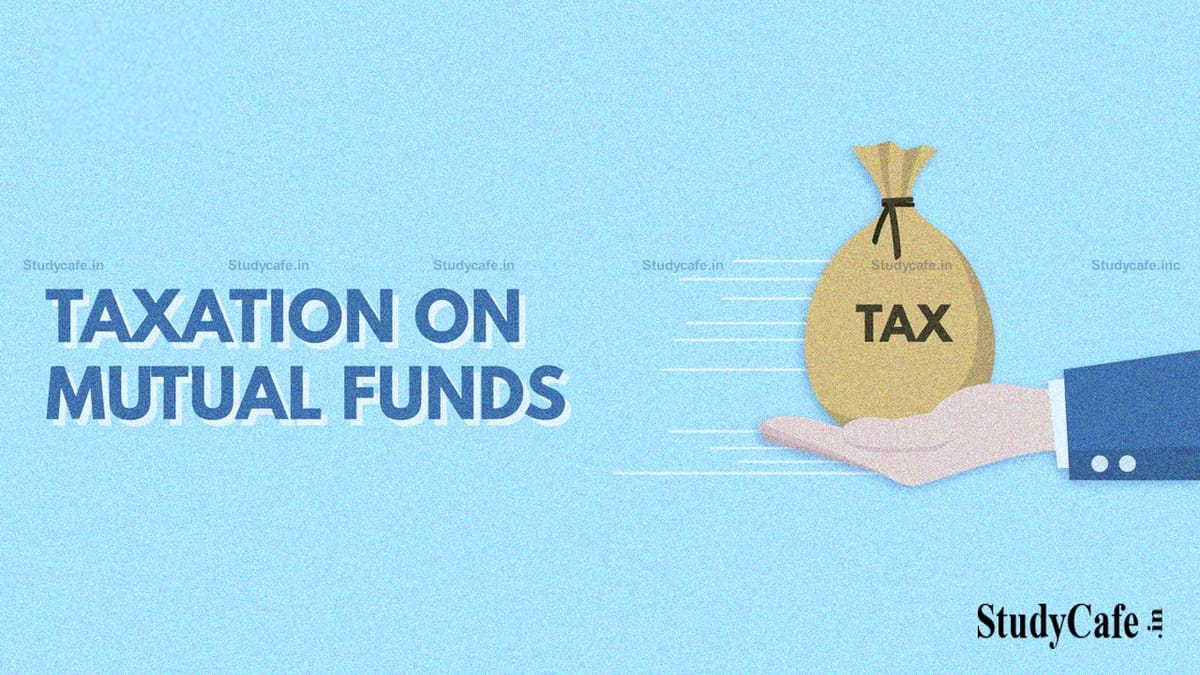Deepshikha | Dec 13, 2021 |

Taxation on Mutual Funds
Mutual funds are one of the most popular investment options since they assist you in achieving your financial objectives. Mutual funds are also a tax-advantaged investment. Fixed deposits have a significant disadvantage, especially if you are in the highest income tax bracket because the interest is added to your taxable income and taxed at the rate set by your income tax slab. This is an area where mutual funds excel. You get the benefit of experienced money management and tax-efficient returns when you invest in a mutual fund.
Dividends and capital gains are two types of returns offered by mutual funds. Dividends are paid from the company’s profits, provided any exist. When businesses have excess cash, they may choose to distribute it to shareholders in the form of dividends. Dividends are paid out in proportion to the number of mutual fund units held by investors.
A capital gain is the profit made by investors when the selling price of the security they own exceeds the acquisition price. To put it another way, capital gains are realised when the price of mutual fund units rises. Dividends and capital gains are both taxables in the hands of mutual fund investors.
Dividends paid by any mutual fund scheme are taxed traditionally, according to the adjustments announced in the Union Budget 2020. Dividends received by investors are added to their taxable income and taxed at the rates applicable to their individual income tax slabs.
Dividends were previously tax-free in the hands of investors since corporations paid dividend distribution tax (DDT) before sharing profits with shareholders in the form of dividends. Dividends (received from domestic enterprises) of up to Rs 10 lakh per year were tax-free in the hands of investors during this period. Dividends above Rs 10 lakh every financial year were subject to a 10% dividend distribution tax.
The capital gains tax rate for mutual funds is determined by the holding period and mutual fund type. The holding period refers to how long an investor kept his or her mutual fund units. The holding period is the duration between the acquisition and selling of mutual fund units in basic terms.
Mutual funds with a portfolio equity exposure of more than 65 per cent are called equity funds. As previously stated, short-term capital gains are realised when you redeem your equity fund units during a one-year holding period. Regardless of your income tax status, these gains are taxed at a flat rate of 15%.
When you sell your stock fund units after a one-year or longer holding period, you earn long-term capital gains. These capital gains are tax-free up to Rs 1 lakh each year. Any long-term capital gains above this amount are subject to LTCG tax at a rate of 10%, with no indexation advantage.
Debt funds are mutual funds with a debt exposure of more than 65 per cent in their portfolio. Redeeming your debt fund units during a three-year holding period results in short-term capital gains, as shown in the table above. These profits are added to your taxable income and taxed at the rate set by your income tax slab.
Long-term capital gains are realised when you sell debt fund units after a three-year holding period. After indexation, these profits are taxed at a flat rate of 20%. You will also be charged the applicable cess and surcharge on tax.
The rate of capital gains taxation on hybrid or balanced funds is determined by the portfolio’s equity exposure. If the equity exposure is greater than 65 per cent, the fund plan is taxed as an equity fund; otherwise, the taxation rules for debt funds apply.
As a result, it is critical to understand the equity exposure of the hybrid scheme you are investing in; otherwise, you may be in for a rude surprise when it comes time to redeem your fund units.
Aside from the dividends and capital gains taxes, there is also a Securities Transaction Tax (STT). When you acquire or sell mutual fund units of an equity fund or a hybrid equity-oriented fund, the government (Ministry of Finance) charges an STT of 0.001 per cent. The selling of debt fund units is exempt from the STT.
The longer you keep your mutual fund units, the lower your tax bill will be. Long-term capital gains are taxed at a lower rate than short-term capital gains.
In case of any Doubt regarding Membership you can mail us at [email protected]
Join Studycafe's WhatsApp Group or Telegram Channel for Latest Updates on Government Job, Sarkari Naukri, Private Jobs, Income Tax, GST, Companies Act, Judgements and CA, CS, ICWA, and MUCH MORE!"